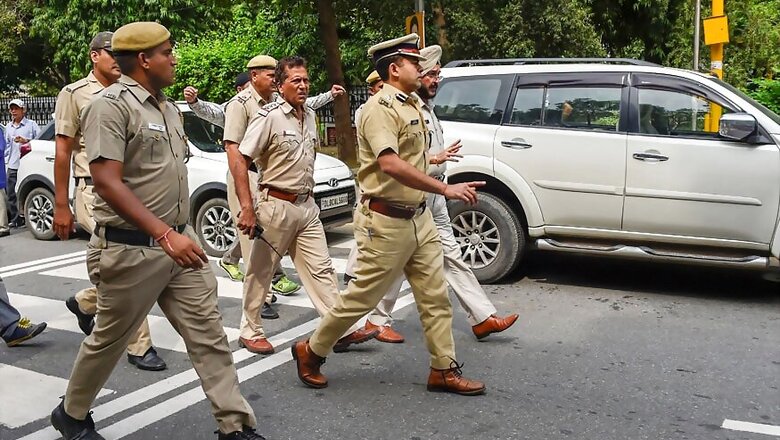
views
New Delhi: Can people be allowed to lodge a first information report (FIR) online or an e-FIR from the confines of their homes, the home ministry has asked the Law Commission.
Registration of FIR is mandatory under Section 154 of the CrPC if the information discloses commission of a cognisable offence and no preliminary inquiry is permissible in such a situation, according to a November 2013 Supreme Court order.
The law panel, while examining the issue, has come across suggestions that if the Code of Criminal Procedure (CrPC) is amended to allow people to lodge FIRs online, one of the fallouts could be that some may use the facility to tarnish image of others.
“Yes, people do find it difficult to go to police stations to lodge an FIR. It would be much easier to lodge one from the comforts of your home. But most find it difficult to lie before police.
“Policemen understand the demeanour of the complainant. But anyone can use the online facility to tarnish the image of someone. This is what we have understood so far. But we have just begun to understand the concept. So, there is no finality,” explained a senior law panel functionary.
In 2016, a total of 48,31,515 cognisable crimes comprising 29,75,711 Indian Penal Code (IPC) crimes and 18,55,804 Special and Local Laws (SLL) crimes were reported, according to Crimes in India of the National Crime Records Bureau. This was an increase of 2.6 per cent over 2015 when the figure stood at 47,10,676 cases.
Requesting anonymity, a former law secretary said if the law panel recommends that FIRs can be lodged online, it will also have to provide a legal framework on how to go about it.
“Though as per law, FIR is compulsory for a cognisable offence, they will have to suggest how to check its misuse,” he said.
The commission has already interacted with several police officials from various states to understand the issue.
During the DGP/IGP conference held in January, “it was suggested that there should be an amendment to Section 154 of the CrPC for enabling online registration of FIR”, the home ministry informed the law panel.
In a letter, its judicial cell said, “It has since been decided to request the Law Commission to consider the suggestion during the course of comprehensive review of criminal laws being carried out by them.”
Rights activist Kavita Krishnan welcomed the suggestion that people be allowed to lodge online FIRs. "It will give greater control to people over FIR. Then police cannot say no... For certain offences, police forces ask people to file FIRs over email. But they only accept complaints and not lodge FIR, no (FIR) number is given. It becomes an FIR much later," she said.
She said access of the poor to the facility will remain an issue as they do not have access to the internet. "But it is a welcome move," the activist said.
Responding to a question, Krishnan rejected suggestions that online FIRs would open 'floodgates'. "FIR is a right under law. Be it online or not, police have to register it. That's the law," she said.
In the Lalita Kumari versus the Uttar Pradesh government and others case in November 2013, a Supreme Court bench had made it clear that "registration of FIR is mandatory under Section 154 of the Code (CrPC), if the information discloses commission of a cognisable offence and no preliminary inquiry is permissible in such a situation."
The bench had also observed that if the information received does not disclose a cognisable offence but indicates the necessity for an inquiry, a preliminary inquiry may be conducted only to ascertain if the cognisable offence is disclosed or not.
"If the inquiry discloses the commission of a cognisable offence, the FIR must be registered. In cases where preliminary inquiry ends in closing the complaint, a copy of the entry of such closure must be supplied to the first informant forthwith and not later than one week.
"It must disclose reasons in brief for closing the complaint and not proceeding further," it had said.
Former Uttar Pradesh director general of police Vikram Singh said for petty offences and accidents, a provision of online FIR already exists.
Singh said that an online FIR "on the face of it is very good." But if people get the freedom of lodging it, then there would be a "flood".
"Ten per cent of the population is involved in lodging fake cases against political rivals or people from other castes and others... To that extent it is not a good idea," he told PTI.
He suggested that section 182 of the IPC dealing with "false FIRs" should be reworked to ensure that those indulging in such activities are punished with a jail term of five years.
This he said will prevent burden on police. He also said a process to "sanitise" the FIRs is also required to prevent its misuse. "In India, there is an unhealthy practice of minimalising crimes among police stations" and it prevents "free registration" of FIRs, he said.




















Comments
0 comment